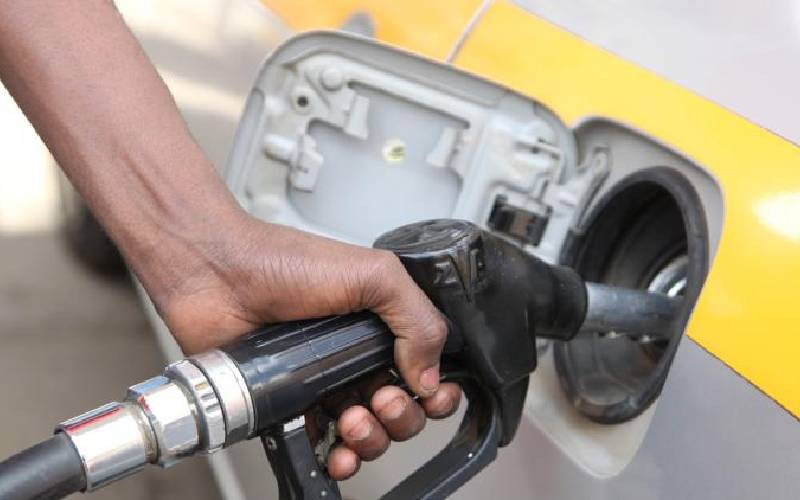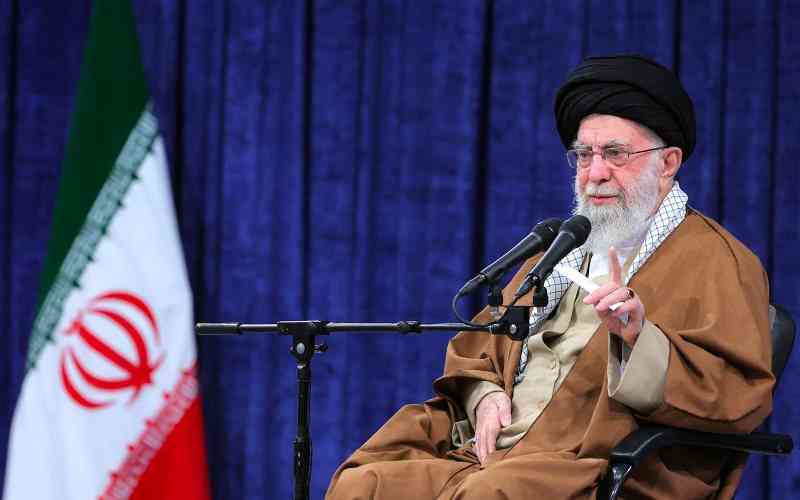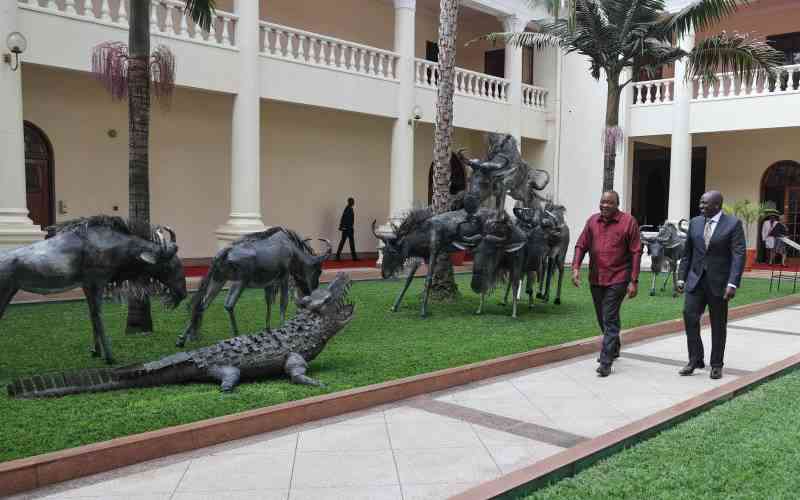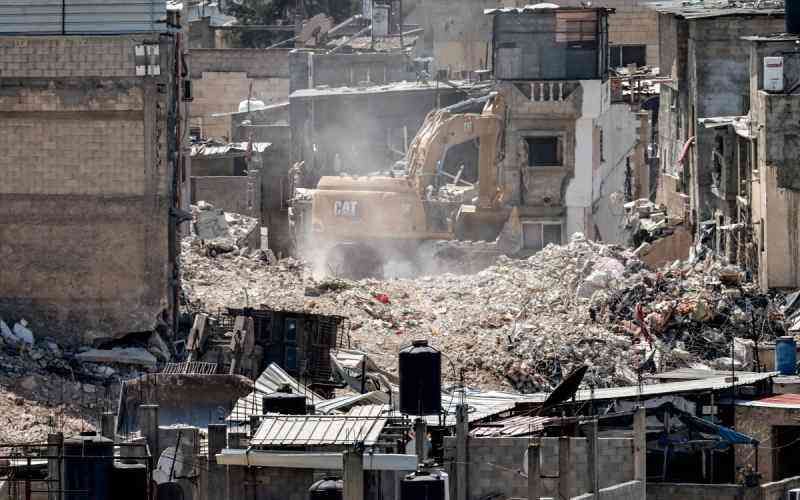A PSV vehicle being fueled at a petrol station along Kenyatta Avenue in Nairobi. [Wilberforce Okwiri,Standard]

A PSV vehicle being fueled at a petrol station along Kenyatta Avenue in Nairobi. [Wilberforce Okwiri,Standard]
The Energy and Petroleum Regulatory Authority (EPRA) has said there is enough oil products to cushion the country against effects of the war between Israel and Iran.
EPRA Director General Daniel Kiptoo said that the government has engaged with suppliers in the Middle East on the steady supply of oil products.
“I want to assure Kenyans that Kenya has enough petroleum products to sustain the country going forward,” said Kiptoo.
The Iran territorial waters connect the Persian Gulf to the Gulf of Oman and the Arabian Sea, which serves as a vital point for the export of a significant portion of the world's oil and liquefied natural gas.
The Strait of Hormuz is renowned for being a crucial chokepoint for global oil and gas trade.




While speaking during the 17th Annual General Assembly of the Energy Regulators Association of East Africa, it was stated that it is too early to speculate on the impact of the ongoing war between Iran and Israel.
Kiptoo said when it comes to supply of oil and security, Kenya operates on an adjusting-time basis, but the government has been able to engage with suppliers.
“This war is something that is really emerging, and we cannot speak about the impact because this is something that happened last week and has continued to evolve, and we cannot say what the long-lasting impact is,” said Kiptoo.
Kiptoo, who was recently appointed Vice Chair of the International Confederation of Energy Regulators (ICER), said that currently 81 per cent of Kenya’s installed electricity capacity is derived from renewables.
He said that Kenya’s support for electric mobility reflects a 41 per cent increase in registered Electric Vehicles (EVs) in just one year, a fact that demonstrates how regulation can drive both environmental and economic outcomes.
“We have also expanded our licensing and regulatory framework for autogas, supporting over 15,000 vehicles running on LPG as a cleaner alternative to conventional fuels,” said Kiptoo.
Kiptoo welcomed the new Energy Regulators Association of East Africa (EREA) Kenyan Chairperson and their Deputy, who will be charged with steering the energy sector forward.
The DG said that the Kenya nuclear power site will be shifted to Siaya after Kwale and Kilifi.
He said that since 2008, EREA has fostered alignment in regulatory approaches and has strengthened institutional capacities across the region.
Stay informed. Subscribe to our newsletter
“Through EREA, we have seen the formation of regulatory bodies in our member countries like Burundi, the Democratic Republic of Congo and Zanzibar. It signifies a growing recognition of the value of independent, structured regulation in driving sustainable energy development,” said Kiptoo.
He said the establishment also strengthens EREA’s collective voice and capacity, enabling us to move more decisively towards harmonised frameworks, cross-border trade, and a more integrated East African energy market.
Kiptoo said the EREA engagement has informed real regulatory improvements and helped to align on common issues like pipeline standards, product quality, and licensing regimes.
“East African Community (EAC) regulators consistently rank among the top five in the African Development Bank’s Electricity Regulatory Index, a reflection of strong technical capacity and regulatory maturity within our region,” said Kiptoo.
DG said that the establishment of the Energy Regulation Centre of Excellence will train future regulators, preserve regional regulatory knowledge, and serve as a think tank for addressing complex issues such as grid decarbonisation, energy affordability, and digitalisation of energy services.
Kenya’s recent achievements in renewable energy illustrate what effective regulation and knowledge sharing can unlock.
He said that by the end of 2024, over 81 per cent of Kenya’s installed electricity capacity was derived from renewables.
He said that in the green fuels space, EPRA has launched regulatory guidelines for green hydrogen, creating a clear path for investors and innovators.